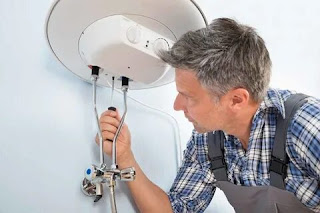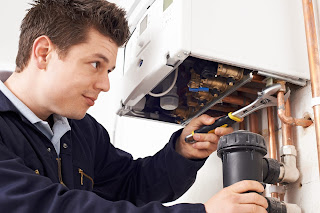5 Ways to protect your water heater from freezing
Water heaters are often one of the most forgotten appliances in the home when it comes to winterizing, but they can be very susceptible to freezing temperatures. If your water heater freezes, it can cause extensive and costly damage.
Living in a cold climate can be difficult at times, especially during winter. One of the most common issues that people deal with is keeping your water heater from freezing. A lot of things need to come together for this to happen including various weather conditions, the type of water heater you have, and if it has been installed properly or not. If any one or more of these factors are missing it increases the chance that your water heater will freeze over this winter so you should take precautions to protect it. Here are five ways that you can protect your water heater from freezing:
1) Check Your Water Heater For Damage
It's important that your water heater does not have any cracks or dents before attempting to prevent it from freezing because these kinds of problems can cause the water heater to crack or break completely during winter, which will make it easier for your water heater to freeze. You should look at the bottom and top of your water heater to see if there are any visible issues with it before putting any other methods into place. If you find anything wrong with it you need to contact a local plumber in order to fix the issue before continuing on because a damaged water heater is much more likely to freeze over.

2) Drain The Temperature And Pressure Relief Valve
The temperature and pressure relief valve is located on the top of most conventional tank-style electric hot water heaters along with gas-fired water heaters that have a similar style. It's typically made from plastic, copper, or brass and is used to release pressure and temperature from the tank in the event that either one of those things get too high. The problem with this valve is that if it becomes blocked, which can happen over time, then it will prevent water from flowing out of the tank if and when the water heater freezes. This will cause the water pressure to increase until the tank eventually bursts. To prevent this from happening you should drain the valve every few months by opening it up and letting any excess water flow out.
3) Add A Water Heater Blanket
One way to help keep your water heater warm during winter is to add a water heater blanket. These blankets are designed specifically for water heaters and fit snugly around them in order to trap in the heat. They're usually made from fiberglass or another type of insulation material and can be found at most hardware stores. If you choose to add a water heater blanket make sure that you read the instructions carefully so that you don't damage the water heater in any way.

4) Keep The Area Around Your Water Heater Clear
It's important to keep the area around your water heater clear so that there is plenty of ventilation. This will help prevent the water heater from overheating, which can cause it to freeze. You should also make sure that there is nothing blocking the drainage pipe, such as snow or ice, because this could cause the water heater to overflow if it melts.
5) Use A Space Heater
If you live in a particularly cold area you can use a space heater to help keep your water heater from freezing. Just be sure to place the space heater in an area where it will not come into contact with any flammable materials and that it is out of the reach of children and pets.
By following these five tips you can help protect your water heater from freezing this winter. If you have any questions or concerns, please don't hesitate to contact a local plumber for assistance.
Conclusion: We know that winter is coming and you want to protect your water heater. Here are 5 ways to do it! Contact us for more information on how we can help with the installation of a new electric or gas water heater, tankless hot water heaters, propane tanks for heating purposes, installing an antifreeze solution in your pipes before freezing temperatures arrive; or if you need plumbing repairs due to burst pipes during this season. These tips will ensure that when spring arrives again next year, you won't be left without hot showers like last time.
Author Bio:- Laura Harnes
Laura is a marketing manager at EZ PLUMBING USA. With years of experience in the plumbing industry, she loves to create awareness about the causes, problems, and repair solutions of water damage and slab leak. She shares expert tips to lower utility bills and keep your AC, heater, and other appliances in optimum condition leading to longer lifespan.
Check all the recent articles and know everything about water damage repair, slab leak repair, tools to remove clogging, and HVAC appliances installation, maintenance, and repair.


Comments
Post a Comment